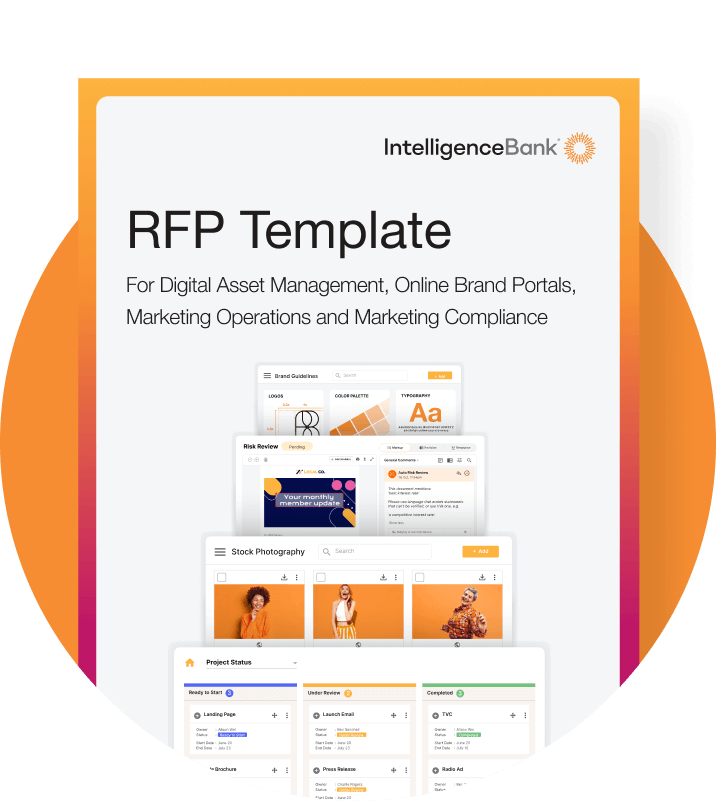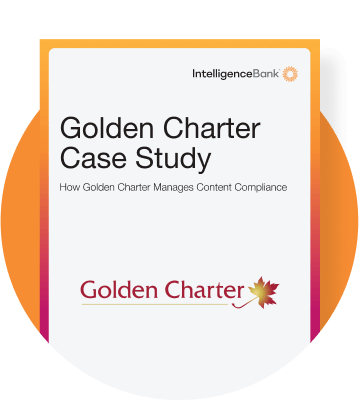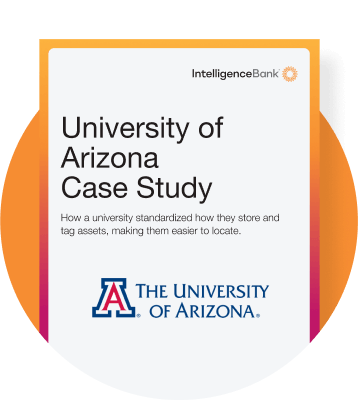Making credible environmental claims is not just a matter of good corporate citizenship – it’s a legal obligation. For Australian businesses, the Australian Competition and Consumer Commission (ACCC) is cracking down on greenwashing.
Misleading claims about environmental practices or sustainability can lead to significant penalties, reputational damage, and loss of consumer trust.
This guide reviews the ACCC’s greenwashing rules, the risks of non-compliance, and how compliance automation can help businesses adhere to these laws efficiently.
Whether you’re launching a new campaign or reviewing existing materials, understanding these rules is essential to ensuring your marketing efforts are both effective and legally sound.
Disclaimer: This document is not intended as a substitute for legal advice. This report has been prepared using both public and private data by IntelligenceBank, a provider of software that helps companies stay on brand and adhere to regulatory compliance. Companies should seek professional legal and regulatory advice when establishing internal compliance protocols.
What is Greenwashing, and Why is the ACCC Focused on it?
Greenwashing is when companies make misleading or exaggerated claims about their environmental efforts to appear more sustainable than they actually are. This can include overstating their eco-friendly practices, using vague terms like “green” or “eco-friendly” without evidence, or leaving out important details about their environmental impact. Essentially, it’s a way for businesses to capitalize on the growing demand for sustainable products without making genuine efforts to reduce their environmental footprint.
After a rise in greenwashing cases, the ACCC announced a crackdown in 2023 publishing eight principles businesses must follow to ensure claims are truthful and substantiated. These principles are designed to protect consumers who are trying to make informed, ethical purchasing decisions. By enforcing stricter rules, the ACCC aims to ensure that environmental claims are accurate, transparent, and backed by evidence, helping consumers make better choices and promoting fair competition in the market.
What Are the Risks of Non-Compliance with ACCC Greenwashing Rules?
Failing to comply with the ACCC’s greenwashing guidance can have serious consequences for businesses in Australia. Here’s what’s at stake:
Financial Penalties
The ACCC has the authority to impose significant fines for misleading or deceptive conduct under the Australian Consumer Law (ACL). Penalties can reach up to $50 million for corporations or three times the value of the benefit gained from the breach. Evidence of this vigilance is demonstrated by the March 2024 fine metered out to Vanguard totaling $12.9M for breaching Environmental, Social, and Governance (ESG) regulatory guidelines. Vanguard was the first successful civil case, more have followed.
Reputational Damage
A publicized greenwashing violation erodes consumer trust and damages your brand’s reputation. In an era where sustainability is a key differentiator, this can lead to lost business and long-term harm.
Increased Regulatory Scrutiny
Businesses that breach greenwashing rules may face heightened scrutiny from the ACCC, including more frequent audits and investigations. This is not only time-consuming but costly.
Legal Action
In major cases, non-compliance can lead to legal action from consumers, competitors, or other stakeholders who feel they were misled by false or exaggerated claims.
These risks underscore the importance of getting marketing compliance right. But with so many rules to follow, how can businesses ensure their materials meet all requirements without overwhelming their teams?
Challenges of Maintaining Compliance with ACCC Greenwashing Rules
Complying with Regulation P across all marketing touchpoints can be a tall order. Here are some of the key challenges banks face:
High Volume of Marketing Content
Keeping up with the ACCC’s greenwashing guidance within a large organization is no simple task. Businesses face several hurdles, including:
Managing a High Volume of Marketing Content
From web pages and digital ads to social media posts, email campaigns and product packaging, businesses are producing more marketing content than ever. Each asset must be reviewed for compliance, placing a heavy burden on legal and compliance teams. And as there are many moving parts, ESG claims are not ‘set and forget’ and must be continually updated.
Meeting Tight Deadlines
Marketing teams work under constant pressure to launch campaigns quickly and capitalize on market trends. The fast-paced nature of digital marketing has only intensified these time constraints, making thorough compliance reviews challenging.
Limited Compliance Resources
Tight resources make it difficult to review all marketing materials efficiently. This can create bottlenecks and slow down the approval process.
Navigating Complex and Evolving Regulations
Greenwashing regulations are intricate and continuously evolving. Staying up to date with changes to the ACCC’s guidelines requires ongoing attention and expertise.
Addressing Interpretation Variability
Different stakeholders may interpret compliance rules differently, leading to inconsistencies in how regulations are applied. This can create confusion, delays, and the risk of non-compliant materials slipping through.
Redundant Review Processes
Marketing compliance reviews often involve repetitive tasks, such as verifying claims, checking certifications, and ensuring transparency. These time-consuming tasks can overwhelm teams, leading to inefficiencies.
How Automation Can Simplify Compliance with ACCC Greenwashing Rules
The upside? Many of these challenges can be significantly reduced with compliance automation. In fact, amalgamated IntelligenceBank research for clients shows that over 75% of comments on marketing content made by Legal or Compliance teams relates to errors such as incorrect claims, and missing or incorrect disclaimers. They are the type of comments that AI can deal with on the spot and lift a large part of the burden for Compliance teams. Here is a snapshot of of the results:
- 17% of comments relate to brand compliance issues: These focused on things like brand name usage, logo issues, font sizes, tone, and readability.
- 38% of comments relate to legal and compliance issues: Common concerns included outdated disclaimers, inaccurate claims, missing disclosures, and specific legal language requests.
- 22% of comments are about wording: This includes phrasing issues around claims and product disclosures, rather than basic spelling and grammar.
- 23% of comments required direct human intervention, where nuance or specific context was needed.
AI-powered tools help businesses turbo charge the review process, minimize the risk of mistakes, and maintain consistency across all marketing materials.
Here’s how it works:
- Create Risk Rules: IntelligenceBank offers a range of pre-existing rule lists tailored to specific legislation by industry and location, including ACCC marketing regulations. These rules can be customized or expanded to fit your organization’s compliance needs.
- Automatically Review Content: Marketing content is automatically reviewed. The platform uses AI-powered technology to see if any of these rules have been breached in your content, (e.g. collateral, digital ads, social media etc.). Reviews can be done at any stage in the production cycle – even when content is already live. The platform provides you with feedback and suggestions for improvement.
- Keep a Record: The platform automatically maintains records of all comments made on PDFs, artwork and images etc. so they can easily be referred to down the line.
Benefits of Automating Compliance Reviews
Compliance automation offers a range of benefits that can transform the way businesses approach marketing compliance. One of the most significant advantages is faster turnaround times.
By streamlining the compliance review process, automation allows marketing teams to move campaigns from concept to launch more quickly, ensuring they can respond to market opportunities without unnecessary delays.
Additionally, automated reviews help bring consistency across materials by applying the same standards to every piece of content. This eliminates the risk of inconsistent interpretations of compliance rules, which can often arise when multiple reviewers are involved.
Another key benefit is the reduced risk of errors. By automating repetitive tasks, such as verifying substantiated claims or checking for transparency, businesses can minimize the likelihood of human error, which is especially critical when dealing with complex regulatory requirements.
Automated compliance review software also provides scalability, enabling businesses to handle large volumes of marketing content efficiently. This is particularly important given the fast-paced nature of modern marketing, where the demand for new materials is constantly growing.
Another benefit is improved collaboration across teams. With a centralized platform, marketing, legal, and compliance teams can work together more effectively, reducing delays and miscommunication while ensuring everyone is aligned on compliance goals.
Lastly, yet critically, automating compliance content reviews can help save valuable time and deliver exceptional Return on Investment (ROI). Predicted outcomes can be estimated using the Content and Web Risk Reviews Cost Savings Calculator.
Together, these benefits not only enhance efficiency but also strengthen the overall integrity of a business’s marketing efforts.
Why Existing Rule Lists Work
While IntelligenceBank does offer completely bespoke automated compliance solutions, pre-built rule packages are a great option to get up and running quickly as they are completely aligned to the laws and regulations.
Pre-configured marketing compliance review packages can be customized to include additional rules required by each organization. They are also regularly updated to reflect changes in legislation, ensuring your business stays ahead of regulatory developments.
Key Compliance Checklists for ACCC Greenwashing Rules
IntelligenceBank’s ACCC Greenwashing Compliance Review Software includes best-practice rules based on the ACCC’s guidance. To give you a sense of the type of content it hunts for, here’s a simplified checklist of some key compliance requirements:
Substantiated Claims
- Ensure all environmental claims are backed by credible evidence, such as scientific studies or third-party certifications.
- Avoid making vague or unsubstantiated claims like “eco-friendly” or “green” without proper context.
Transparency
- Clearly explain the basis for any environmental claims, including how they were calculated or measured.
- Disclose any limitations or conditions that apply to the claims.
Accuracy
- Avoid exaggerating the environmental benefits of a product, service, or business practice.
- Ensure claims are specific and not open to misinterpretation.
Third-Party Certifications
- Properly attribute any third-party certifications or endorsements used in marketing materials.
- Ensure certifications are current and relevant to the claims being made.
Comparative Claims
- When making comparative claims, ensure they are fair, accurate, and based on like-for-like comparisons.
- Avoid misleading comparisons that exaggerate the environmental benefits of your product or service.
Get the complete list with IntelligenceBank industry- risk reviews.
Ready to Simplify Your Compliance Process?
As with most tasks in life, having the right tools makes all the difference. The job of staying compliant with the ACCC’s greenwashing rules can be managed with greater speed and accuracy by AI-powered automated review software.
IntelligenceBank’s automated compliance solutions are designed to catch precisely the issues regulators look for, helping you maintain compliance with confidence and efficiency.
Contact us today to learn more or book a demo.




